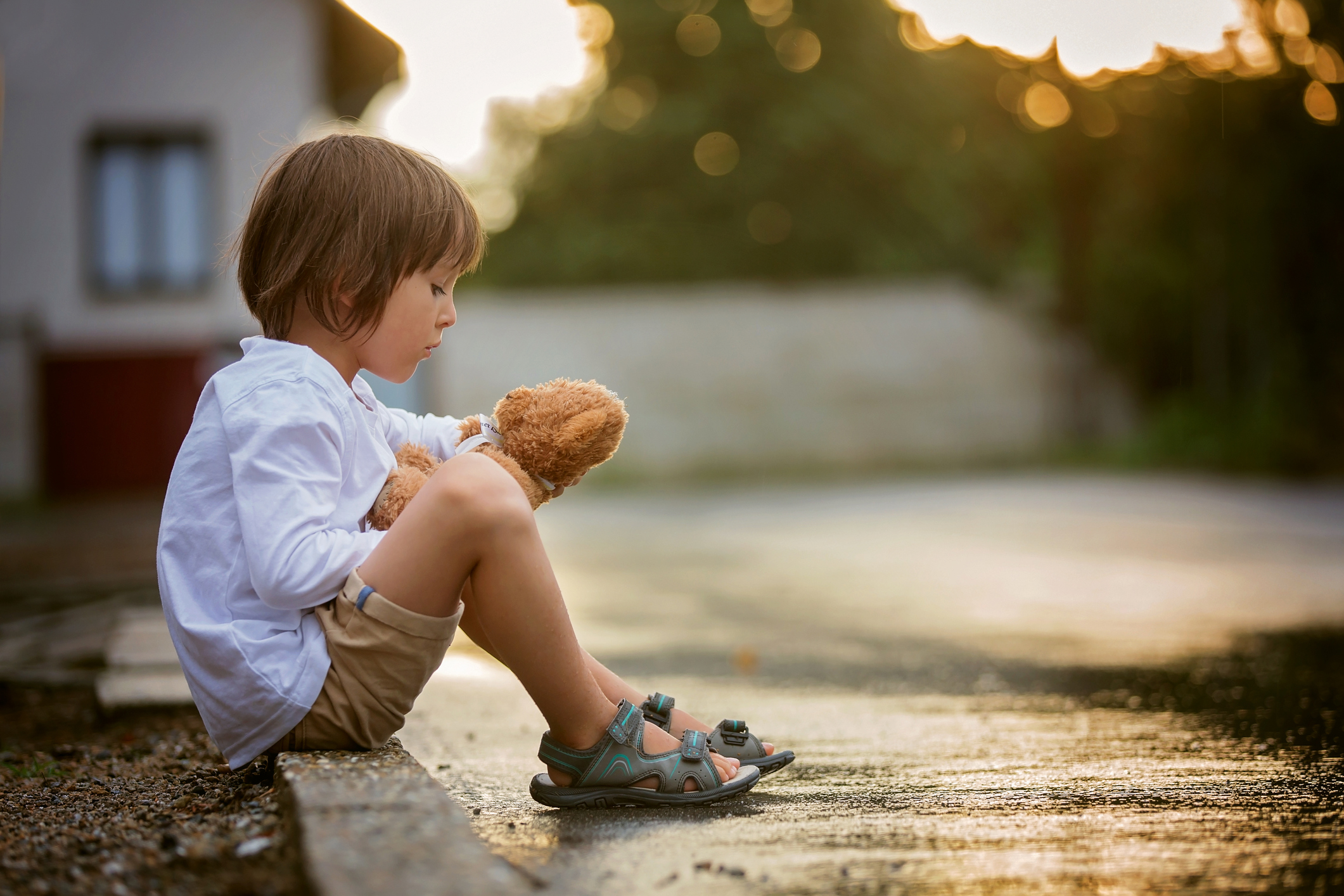Why I teach my kids to be rude
This is one of the best qualities we can instill in our children


A free daily email with the biggest news stories of the day – and the best features from TheWeek.com
You are now subscribed
Your newsletter sign-up was successful
"Stop following me!" my 7-year-old said firmly to another child at the playground. "I don't want to play with you right now!" He had repeated the boundary multiple times, but to no avail. The mother finally stepped in and grabbed her child in anger, loudly saying, "Come on. You don't want to play with that kid anyway. He's being rude."
I bit my tongue. I wanted to defend my son. I also wanted to apologize for his perceived rudeness. But stopped myself. He wasn't being rude. He had asked the child several times to stop following him. His boundaries and voice weren't being respected.
My sensitive little guy looked up at me, concerned, after hearing an adult call him rude. I smiled assuredly. "Some people, even adults, are still learning what the word 'rude' means," I said. "And that lady used it the wrong way. What she should have said was, 'Please respect that kid's boundaries.'"
The Week
Escape your echo chamber. Get the facts behind the news, plus analysis from multiple perspectives.

Sign up for The Week's Free Newsletters
From our morning news briefing to a weekly Good News Newsletter, get the best of The Week delivered directly to your inbox.
From our morning news briefing to a weekly Good News Newsletter, get the best of The Week delivered directly to your inbox.
My son didn't quite understand. "Why don't adults already know that? And why don't kids stop following me when I ask them to?"
This was a difficult question to answer for a kid his age, but I did my best.
"Some adults have been raised to believe that saying no is rude," I said. "When they were little, they were probably told to say yes when asked to do something, or pretend to like things that they don't, for the sake of other people's feelings."
The message went over his head, mostly.
A free daily email with the biggest news stories of the day – and the best features from TheWeek.com
"Why would someone pretend to like things they don't? If you don't like something happening to you, you shouldn't pretend you like it. Right?"
"Right."
I high-fived myself internally. The most important message I've tried to instill in my kids since birth is that it's their body, their choice. I want them to speak up if they don't like something that's happening to them, or if they see someone else having their boundaries ignored. I do this by giving them a voice — and authority. I encourage them to tell me no. And I absolutely support them when they tell other people no. Our children deserve to be heard and respected whenever possible. They need to practice using their "no" muscles so that they know how to use it when it counts; when someone is trying to violate their boundaries — physically or emotionally. They need to practice standing up when the stakes are small, so that they might have the courage to get up when the stakes are high.
The naysayers will tell me that sometimes, people have to do things they don't like. That's true. But we don't have to be touched in ways that we don't like. We don't have to be talked down to. We don't have to sacrifice ourselves, our autonomy, to please others. And all this holds true for children.
But in the U.S., adopting these beliefs — that children should be encouraged to say no — requires a massive mental shift. Despite all the research about the detriments of physical punishment, and the fact that 51 countries have banned corporal punishment altogether, American society still protects the right to physically violate and override a child's autonomy in the name of parenting. And oftentimes those who physically punish children defend their choice by suggesting modern kids are entitled or spoiled and need to "be taught a lesson" or "learn their place." These counter arguments hold zero weight or credibility. Kids are human beings with immature brains — but they're still human beings, and they deserve to have their boundaries respected.
But we have to train them to demand this respect, to be direct, honest, assertive, and in charge of their own agency, as much as possible. That means training them to say no.
"No, I don't want to go out tonight."
"No, I can't work for you again at the sacrifice of my own happiness."
"No, I don't want you to touch me like that."
"No, I won't do xyz because it is unethical."
"No, you can't treat human beings like political bargaining chips."
You get the idea.
Children who are allowed to say no and be assertive will have more tools in their mental tool belt if they are ever in a situation that makes them feel uncomfortable. Being empowered to say no doesn't guarantee that our children won't be violated at some point in their life, but it might discourage an abuser from harming them because they'll know the child isn't afraid to speak up.
Giving our children autonomy and authority over their existence also fosters empathy and compassion. If my son sees someone being treated in a way that they obviously don't like, he either reaches out to me, or to them directly (if he feels safe to do so). A child might have been shouted at by their mother. My son will even go over and ask the child if he is okay. When we offer compassion and empathy to our children when they are uncomfortable with a situation, rather than telling them to get over it, they, in turn, develop compassion and empathy for those around them.
So, yes, I teach my kids to be "rude." They will tell you how they feel and when something you're doing doesn't work for them. They won't just go along with whatever they're told. But I know that teaching my children to say no will serve them well throughout their entire life.
Sam Milam is a freelance writer, photographer, and child advocate. She's coached parents on attachment and development for the past five years. When she isn't working, you can find Sam exploring the Pacific Northwest with her kids or escaping into the nearest yoga studio.
-
 The Olympic timekeepers keeping the Games on track
The Olympic timekeepers keeping the Games on trackUnder the Radar Swiss watchmaking giant Omega has been at the finish line of every Olympic Games for nearly 100 years
-
 Will increasing tensions with Iran boil over into war?
Will increasing tensions with Iran boil over into war?Today’s Big Question President Donald Trump has recently been threatening the country
-
 Corruption: The spy sheikh and the president
Corruption: The spy sheikh and the presidentFeature Trump is at the center of another scandal
